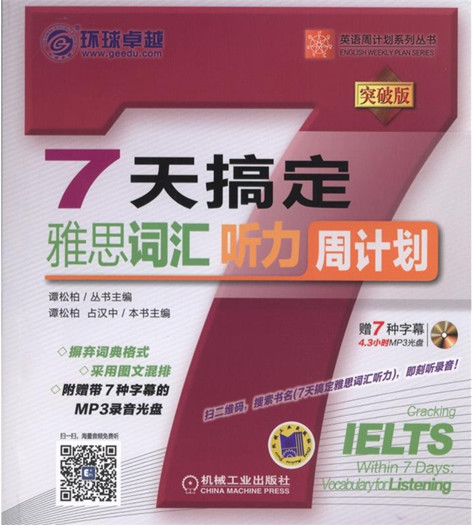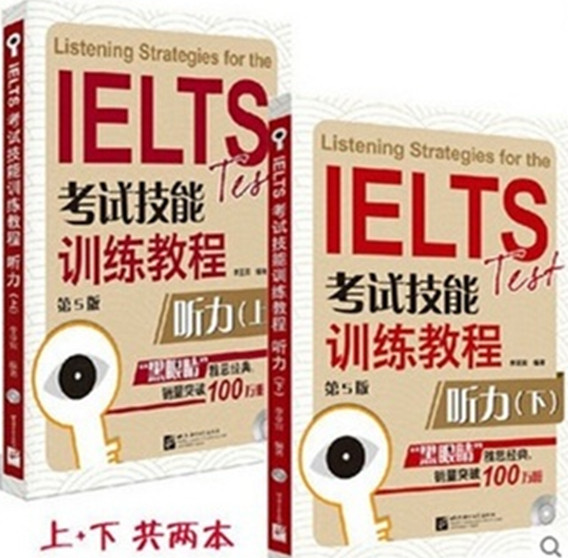一、考试概述:本次新年的第一场考试又是AB卷。A卷第一篇话题讲了生物的生存不确定性,第二篇介绍了音乐的力量,第三篇讲了课堂大小对于学习效果的影响。的话题是两新一旧,第一篇内容为古生物化石,第二篇是情绪影响人的行为,第三篇是儿童文学
二、具体题目分析
A卷Passage 1:题目:Living with uncertainty
题型:判断 7+简答 6
题号:新题
答案:1-7
判断题1 FALSE2 TRUE3 NOT GIVEN4 TRUE5 NOT GIVEN6 FALSE7 TRUE
8-13简答题
8 lit fires9 saltbush10 European farming11 wheat12 pear13 Tellers
(目前无明确回忆,答案仅供参考)
Passage 2:
题目: The power of music
题型:段落信息匹配 5+Summary 4+人名配理论 4
文章大意:待补充
答案:14-18信息配段落14. D15. I16. C17. F18. E
19-22 Summary without word list
19 physical health20 disabled21 brain scans
22 walking
23-26人名配理论23 C24 B25 A26 A
(答案仅供参考)
Passage 3:
题名:Does class size matter?
题型:段落信息匹配 5+分类配对 9
文章大意: 待补充
答案:27-31
段落信息匹配27 D28 E29 A30 C
31 B
32-40 Classification32 A33 C34 B35 C36 A37 C38 A39 B40 A
(目前无明确回忆,答案仅供参考)
B卷Passage 1:
题目:The History of building telegraph lines
题型:判断 6+简答 7
文章大意:电报的发展史
相似文章:
A The idea of electrical communication seems to have begun as long ago as 1746, when about 200 monks at monastery in Paris arranged themselves in a line over a mile long, each holding ends of 25 ft iron wires. The abbot, also a scientist, discharged a primitive electrical battery into the wire, giving all the monks a simultaneous electrical shock. "This all sounds very silly, but is in fact extremely important because, firstly, they all said 'ow' which showed that you were sending a signal right along the line; and, secondly, they all said 'ow' at the same time, and that meant that you were sending the signal very quickly, "explains Tom Standage, author of the Victorian Internet and technology editor at the Economist. Given a more humane detection system, this could be a way of signaling over long distances.
B With wars in Europe and colonies beyond, such a signalling system was urgently needed. All sorts of electrical possibilities were proposed, some of them quite ridiculous. Two Englishmen, William Cooke and Charles Wheatstone came up with a system in which dials were made to point at different letters, but that involved five wires and would have been expensive to construct.
C Much simpler was that of an American, Samuel Morse, whose system only required a single wire to send a code of dots and dashes. At first, it was imagined that only a few highly skilled encoders would be able to use it but it soon became clear that many people could become proficient in Morse code. A system of lines strung on telegraph poles began to spread in Europe and America.
D The next problem was to cross the sea. Britain, as an island with an empire, led the way. Any such cable had to be insulated and the first breakthrough came with the discovery that a rubber-like latex from a tropical tree on the Malay peninsula could do the trick. It was called gutta percha. The first attempt at a cross channel cable came in 1850. With thin wire and thick installation, it floated and had to be weighed down with lead pipe.
E It never worked well as the effect of water on its electrical properties was not understood, and it is reputed that a French fishermen hooked out a section and took it home as a strange new form of seaweed The cable was too big for a single boat so two had to start in the middle of the Atlantic, join their cables and sail in opposite directions. Amazingly, they succeeded in 1858, and this enabled Queen Victoria to send a telegraph message to President Buchanan. However, the 98-word message took more than 19 hours to send and a misguided attempt to increase the speed by increasing the voltage resulted in failure of the line a week later.
F By 1870, a submarine cable was heading towards Australia. It seemed likely that it would come ashore at the northern port of Darwin from where it might connect around the coast to Queensland and New South Wales. It was an undertaking more ambitious than spanning an ocean. Flocks of sheep had to be driven with the 400 workers to provide food. They needed horses and bullock carts and, for the parched interior, camels. In the north, tropical rains left the teams flooded. In the centre, it seemed that they would die of thirst. One critical section in the red heart of Australia involved finding a route through the McDonnell mountain range and then finding water on the other side.
G The water was not only essential for the construction team. There had to be telegraph repeater stations every few hundred miles to boost the signal and the staff obviously had to have a supply of water, lust as one mapping team was about to give up and resort to drinking brackish water, some aboriginals took pity on them. Altogether, 40, 000telegraph poles were used in the Australian overland wire. Some were cut from trees. Where there were no trees, or where termites ate the wood, steel poles were imported.
H On Thursday, August 22, 1872, the overland line was completed and the first messages could be sent across the continent; and within a few months, Australia was at last in direct contact with England via the submarine cable, too. The line remained in service to bring news of the Japanese attack on Darwin in 1942. it could cost several pounds to send a message and it might take several hours for it to reach its destination on the other side of the globe, but the world would never be same again. Governments could be in touch with their colonies. Traders could send cargoes based on demand and the latest prices. Newspapers could publish news that had just happened and was not many months old.
答案:
Questions 1-6
1 In the research of French scientists, the metal lines were used to send message T
2 Abbots gave the monks an electrical shock at the same time, which constitutes the exploration on the long-distance signaling. T
3 Using Morse Code to send message need to simplify the message firstly F
4 Morse was a famous inventor before he invented the code T
5 The water is significant to early telegraph repeater on continent. T
6 US Government offered fund to the I st overland line across the continent NG
Questions 7-14
Answer the questions below.Choose NO MORE THAN TWO WORDS AND / OR A NUMBER from the passage for each answer.
Write your answers in boxes 7-14 on your answer sheet.
7. Why is the disadvantage for the Charles Wheatstone's telegraph system to fail in the beginning?It's expensive
8. What material was used for insulating cable across the sea?latex
9. What was used by British pioneers to increase the weight of the cable in the sea?Lead ripe
10. What did Fisherman mistakenly take the cable as?Unusual seaseed
11. Who was the message firstly sent to across the Atlantic by the Queen?President Buchanan
12. What giant animals were used to carry the cable through desert?camels
13. What weather condition did it delay the construction in north Australia?Tropical rain
14. How long did it take to send a telegraph message from Australia to England?Several hours
(答案仅供参考)
Passage 2:
题目:儿童天赋和能力影响
题型:判断 5+概括 5+多项选择4
文章大意:孩子的天赋和能力影响,孩子容易受到环境影响学习到一些能力,而大人不容易,各种比较,举了语言的例子和其他能力的例子
答案:1-4选择题
1. Which one not mentioned about infantA intelligence C social skillsD language
2. What the animal experiment is to illustrate Different lines and angles affect sight
3. the second experiment on … is prove that Human’s development is similar to animals in this area
4. Why children appears mindless
Cortex still does work
5-9 summary
实验用的speech sound语言是Japanese研究人员选用的,做第二个实验给小孩听噪音(noise)心跳变快(heart rate),第三个实验 visual observation有关,仔细观察physical eye movement.第四个实验因为选的地域广,结论充分harness dialects,由此科学家可以很好的控制他们的实验。
10-14 YES/NO/ NOT GIVEN
10. Japanese research on adults produce conclusive outcome Y
11. Some babies can identify all phonemes Y
12. two people have intended to find ****8 months to N
13. adults can hear phonemes but takes longer time to process the information NG
14. children who can grew up in bilingual families tend to become bilingual NG
(答案仅供参考)
Passage 3:
题目:贸易
文章大意:贸易的发展史,讲了贸易的人的天性以及各地的贸易发展水平和状况
答案:待补充
- 12-17·2018年12月15日雅思阅读考试回忆及解析
- 12-15·2018年12月15日雅思阅读考后回忆(网友版)
- 12-14·2018年12月13日雅思阅读真题回忆(网友版)
- 12-08·2018年12月8日雅思阅读考试真题回忆
- 12-03·2018年12月1日雅思阅读考试回忆及解析
- 12018-12-172018年12月15日雅思阅读考试回忆及解析
- 22018-12-152018年12月15日雅思阅读考后回忆(网友版)
- 32018-12-082018年12月8日雅思阅读考试真题回忆
- 42018-12-032018年12月1日雅思阅读考试回忆及解析
- 52018-12-032018年12月1日雅思阅读考后回忆
编辑推荐
- 模拟试题
- 历年真题





